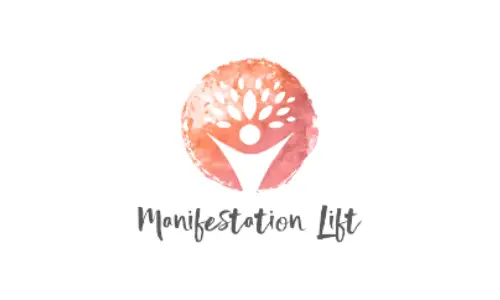Has there ever been a time when you suddenly realized you were totally judging someone else?
I know I have been guilty of it in the past.
I remember one occasion specifically as I’d been chatting to my best friend for an hour on the phone. When I hung up and thought about it, I realized that we’d spend the whole time talking and speculating about the rumors and scandals we’d heard since we last spoke. We didn’t even know if any of it was true!
I felt awful about it! I hadn’t intended for the conversation to be that way, and I definitely didn’t mean some of the things I said. It was a natural, private chat that was confidential and between very close friends, but it didn’t feel right.
I didn’t want to be one of those people.
From that day – which is why I remember it so clearly – I decided to focus on filling my mind with only respect and love for others.
The first thing I want to reassure you of is that you’re not the only one if you have ever noticed that you judge other people.
As you can see from my example, we all do it occasionally – sometimes without realizing it.
But if you’re reading this with the intention of changing your behavior, that’s great! It means you’re aware that you do it and you want to develop.
I congratulate you on taking the first step towards becoming more conscious of your automatic thoughts. You clearly have a strong instinct of positivity and no longer want to have negative feelings or speculations about others, and that’s a really valuable asset!
In this article, I’m going to tell you five things you can do that will help you stop automatically judging people.
The suggestions I will give you are things you can easily implement every day, which will lead to you generating more respect, awareness, and acceptance of others.
Absolutely anyone can do this if they choose to!
But first things first. Let’s not run before we walk! Let’s first take a look at some of the reasons and motivations behind why we judge others and why it’s so vital that we learn to break this automatic response. We’ll come back to the ways you can stop judging in a few minutes.
Why Do We Judge?
Back in history, when the human race was evolving, making automatic judgments about the people you met was so important – it could be the difference between life and death!
You had to judge if someone could be trusted to do battle with, do business with, to buy from, etc.
In today’s society, we thankfully tend to be more refined and cultured in our interpersonal interactions.
However, there are times where it’s not such a bad thing to make a snap judgment on someone. Especially if they have something about them that your instinct is warning you is dangerous or can’t be trusted.
It’s interesting how similar intuition and judgment are, and it’s good to bear this in mind.
If your instinct is screaming out that someone poses a risk to you, please don’t ignore it because you’re worried that you will look judgmental. Recognizing and understanding your own intuition is really important, as is judging what is good and bad for you.
Plus, judging people or situations in itself is not a negative thing.
However, the problems come when your judgments are automatic and cynical, disrespectful or damaging, as in the following examples:
- You think so long and hard about other people and their actions (that you perceive as negative) that you start to obsess over them. Your energy gets lower and lower, which leads you to anger and bitterness.
- You don’t have any control over your judgments of people – it’s like you’re on automatic pilot mode, and you can’t avoid doing it.
- You have an addiction to judging other people and have no inclination to address it.
The reason that this happens is due to the ego, and it comes from a place of fear.
During the process of human evolution, as our fears stopped being about physical threats and become more linked to social and emotional hazards, our ego upped its dominance of our mindset.
This fear-based mentality is the cause of our negative, automatic judgments of others.
Many types of fears may generate our judgments, including:
- Fear of diversity or variety (judgments based on someone else’s race, culture, physical aspect, religious beliefs, etc.).
- Fear of losing your own unique identity (judgment of people doing things that seem very similar to how you behave).
- Fear of isolation (judgment of other people in relationships).
- Fear of debt (judgment of people who have more financial stability than you do).
- Fear of rejection (judgment of other people’s confidence and self-assurance levels).
- Fear of making mistakes (judgment of other people’s beliefs, value systems, opinions, etc.).
- Feeling insecure about your own identity (judgment of any behavior that contradicts how you behave).
You might have noticed above that I have highlighted the words, unique and identity. This is because these are constructs of the ego. The ego is our ‘self-image’ mask and sense of self that we put out to the world. We have an identity that is based on our belief system, our morals, and standards, plus our physical appearance, our preferences, etc. The ego guides our role in society, and when it feels that our identity is at risk or is being challenged, that’s when fear kicks in and negative judgment occurs.
To avoid this, we need to penetrate our own ego’s mask, plus the masks that other people wear. This is the only way we can truly accept each other and avoid judgment.
Under our masks, we are all pure beings who want to love and respect one another. But unfortunately, societal rules have meant that we wear our masks without thinking and to fit in because everyone wears one.
Why is it Important to Stop Doing it?
I’m sure that you now understand that when we use it consciously, judgment is a very natural process that can serve a useful purpose. Because of this, it’s safe to say that you’re not going to stop judging other people 100% of the time.
But it is essential to have more control over the automatic adverse judgments that pop into our mind so that we can avoid the ego becoming embroiled in a negative thought spiral.
The general rule is that if you’re not in a situation where you need to make a judgment call to save your own life, it’s going to cause you more problems than it will fix.
There are several reasons why it’s important to take control of your automatic judgments, and here are a few of them:
- It’s not based on facts, so it can be a big waste of your time as your judgments may be completely inaccurate.
- You can upset or damage other people with your assumptions and speculations.
- Your energy and vibration will lower as you think negative thoughts.
- When you judge people negatively, this can spiral out of control, so you have adverse thoughts about other areas of your life.
- The energy that you put into the Universe is one of lack as it comes from a place of fear and dissatisfaction. This energy will only attract more lack and fear to your life.
- It is the opposite of the vibration of gratitude and will never bring you anything positive.
5 Ways to Stop Automatic Judgments
Let’s move on and look at how you can stop yourself from judging others.
1.) Understand the Fundamental Cause
The initial thing that you need to do is understand what causes you to judge others.
Next time you find yourself thinking negative judgmental thoughts, ask yourself this question:
“What fears do I have for myself that this person is highlighting to me?”
Let’s have a look at an example. You go to a restaurant for a meal and order your food. When your meal comes, the waiter brings the wrong dish. Your immediate judgment might be that they are useless and don’t deserve their job, or that they weren’t listening to you when you ordered.
When you notice these types of thoughts, ask yourself the question.
What personal fear is it highlighting to you?
In this situation, the things that might come up for you could include:
- “Maybe it was my fault. Perhaps I spoke too quietly.”
- “Should I just eat what they’ve brought me? What if I don’t like it? I don’t want to have to pay for something I don’t eat.”
- “I’m worried that they won’t change the order and I’ll have to complain to the manager. I don’t like confrontation.”
- “I might be late for my appointment if I have to order something else and wait for it.”
All of these things come from a place of fear. When you can recognize that this is the case, it becomes more obvious that these judgments come from how you feel about yourself rather than the other person.
In any situation, you can only ever control your own reaction. You do not have the power to direct or manage anyone else’s. If your automatic response is to become angry or annoyed with the person you’re dealing with, then you need to do a bit more work on understanding your own fears.
Recognizing your own anxieties and vulnerabilities will boost your ability to empathize and have compassion towards the other person, which in this example is the waiter who is serving you. If you don’t automatically jump to attack mode, you will be able to communicate with and understand the other person much better.
2.) Nurture a Positive Attitude
To turn yourself into someone who is more open, friendly, loving, and receptive to others, the best place to start is by developing a positive attitude and mentality.
Think of your mind as if it were a garden. If you are going to sew positivity seeds in your garden, you need to water them and cultivate them so that they grow into strong, healthy, beautiful plants as quickly as nature will allow.
Part of nurturing and tending to your garden is dealing with any weeds. It’s essential that you remove any weeds before they grow too wild and start to affect your positivity seeds.
In this analogy, your automatic negative judgments and preconceived opinions are the weeds. The sooner you recognize them, the faster you can pull them out and water your garden with love and respect instead.
Initially, this might seem difficult as we have had these automatic thoughts and reactions for years. But as you persevere with the process, it will get easier to recognize your weeds (bias and negative judgments), and as you tackle them, they will start to reduce in frequency.
A key thing to remember is that you shouldn’t turn your negative judgment or criticism of others onto yourself and reprimand yourself for how you have been up to now. As I said earlier on, we all do it from time to time, yet you’re here, right now, reading this article with a desire to change. It’s a very powerful step that only deserves praise.
Nurture a positive attitude by watering your garden with things that will cultivate it, such as love, respect, patience, etc. Pull up and throw away the weeds as they don’t serve any positive purpose – they just interfere with the beautify and purity of your mentality.
3.) Avoid External Bad Influences
In relation to judging other people, external forces such as other people can be a really bad influence!
Has it ever happened to you when you’ve met up with a friend and once you’ve got past the pleasantries, you both become stuck for things to say, so after a while, one of you brings up a rumor or bit of hearsay?
And try as you might, you get sucked into an hour of gossiping.
As I mentioned right at the beginning of this article, you’re not alone.
However, there are some people who are naturally more judgmental and focused on this type of conversation than others.
Take a minute to consider the conversations you have with friends and family members.
Are there some people who you usually end up gossiping with?
Maybe there are some with whom your conversations usually end up being quite negative about other people.
Who do you have positive, inspirational conversations with?
Who makes you feel low in energy and mood after you’ve spoken to them?
Do your conversations with certain people focus on you and them, or do you tend to talk more about everyone else?
It can be quite difficult to avoid becoming judgmental when you hang around or engage in conversations with judgmental people. Judgment breeds judgment. Especially if they’re stuck in some of the behavior patterns we looked at earlier where it’s almost an obsession or that they’re on automatic pilot.
If you start to notice that you usually have negatively judgmental conversations with particular people, I would recommend that you try to avoid engaging in these conversations as much as possible.
They will only drag you down and lower your mood, particularly if you’re working hard to break out of your own judgment pattern.
4.) Challenge the Judgments
Someone who is authentic and speaks their genuine truth can change the world.
When you find yourself in a situation or conversation where negative judgments are taking place, there is nothing to stop you from drawing attention to what’s happening. I’m not suggesting that this is done in an aggressive manner or that you should start judging the people who are speaking negatively.
The best way to do it is to stay firmly in a position of respect, compassion, and tolerance and tackle a judgmental conversation from there. Even if you’re trying to stay out of it, you have a level of responsibility for anything that happens in your presence. It doesn’t help to apportion blame to the people who made the comments, which can be counterproductive as it can make people defensive and aggressive.
If you assume some of the responsibility, it’s easier to share your opinion with the other involved without seeming like you are attacking them or being condescending.
Here are some comments that you can make to challenge and interrupt judgmental comments the next time they are said in your presence:
- “Perhaps we are being a bit harsh.”
- “Maybe there’s more to it, and we don’t know all the details.”
- “I think we’re being a bit unreasonable.”
- “Let’s not judge them quite so quickly.”
Comments like these allow you to put your thoughts and feelings across in a balanced way. They will hopefully make the other people stop and consider what they’re saying. You are also taking some control over what is happening in your environment, which is really important. If negative judgments are left unchallenged, they will still have an impact on you because you will feel guilty that you didn’t address them.
5.) Learn to Appreciate Diversity
For me, this was the most important thing to learn. It was like a big reawakening for me when suddenly everything seemed much clearer.
I’m not saying that I didn’t have an awareness or appreciation of the diversity that exists between all of us, but adapting how I thought about it truly deepened my understanding. This in itself led me to become much less judgmental.
If you think about all humans on earth, we are all born with so many similarities, but at the same time, we have thousands of differences.
Every single one of us is completely unique. This is true throughout life, right from conception to death. Even twins will have different experiences in the womb. Every life experience that we go through adapts and forms us. Our experiences shape our opinions and perceptions, as do the people we grow up with. We all have unique relationships, adventures, thoughts, emotions, etc.
It’s all of these differences that make life so beautiful and interesting!
If the world didn’t contain diversity and every human was the same as the next, we would never grow and develop. Well, we would, but we would simply be like a clone of the next person.
However, because of our differences, every time we interact with other people through a conversation, relationship, etc., we are learning new things about them and ourselves. This leads to personal growth. We are not on this earth to all adhere to identical norms.
Becoming less judgmental does not mean that we turn a blind eye to what makes us different; we proactively rejoice in them!
Whenever you meet people who seem diverse and have different qualities to you, feel gratitude that you are able to spend some time with them and learn from them. Each of these opportunities is a chance to develop love, compassion, empathy, and personal growth.
To summarize, I’d like to quote the words of Walt Whitman, “Be curious, not judgmental.”
I have one last suggestion for you, which I’ve already briefly mentioned, but is the starting point for you as you set off on this journey.
If you are determined to stop judging other people, it’s important to start with yourself! You’re only human, so don’t beat yourself up for any past judgments you may have had or if it feels like a difficult habit to break. The intention is there, and you can do it.
If you don’t free yourself from negative judgment, it will be impossible to stop judging others.
So relax, treat yourself with love and respect first, and it will soon expand to cover other people.
Manifest ANYTHING you desire in just five easy steps!
Remember that you can access and download your free guide to help you tap into your incredible manifestation abilities!
Start Living My Dream Life Now!







